![]() — หน้าแรก — เกาะติดข่าว
— หน้าแรก — เกาะติดข่าว
ข่าวเศรษฐกิจและธุรกิจประจำสัปดาห์
-
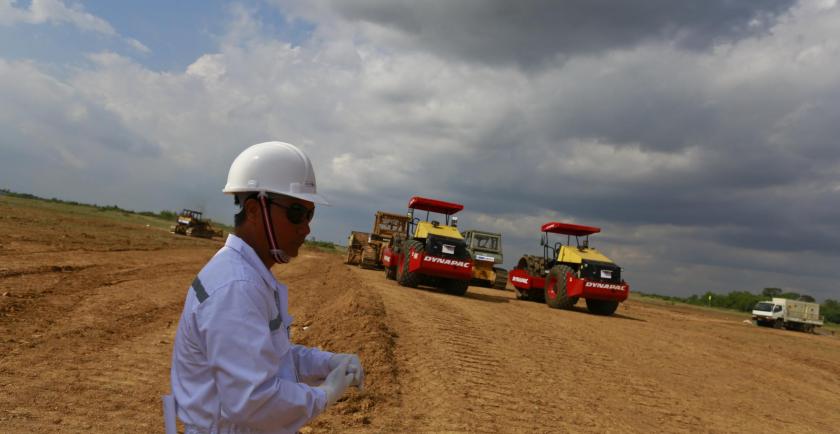
Companies wishing to employ foreign experts and technicians must obtain permission from the Myanmar Investment Commission
Companies wishing to employ foreign experts and techni¬cians must submit a list of employees to the Myan¬mar Investment Commis¬sion (MIC) before seven days of their employment, according to the direction the Directorate of Invest¬ment and Company Ad-ministration (DICA) gave on October 3, 2017. Foreign “Experts and technicians” would in¬clude things like: engi¬neering, consultants man-agement level employees, etc. Companies are le¬gally required to seek ap¬proval from the Myanmar Investment Commission before employing foreign experts and technicians. This list must include the work permit applica¬tion form. Foreign experts and technicians’ personal information like passport number, nationality, oc¬cupation, employment du¬ration; educational back¬ground, certifications and curriculum vitae (CV); the number of foreigners and locals employed by the company; and the compa¬ny’s most recent quarterly report, are all required in¬formation on the applica¬tion form. -
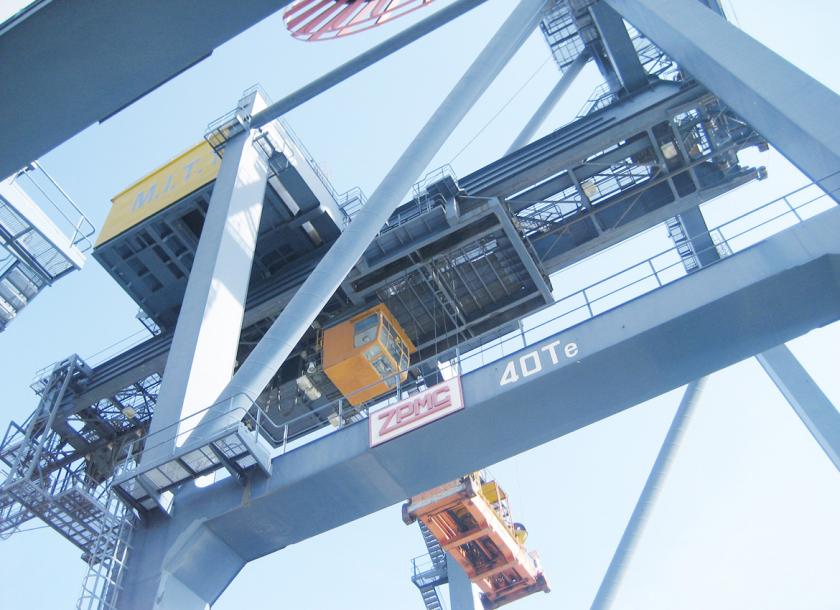
Japanese investors are highly interested to expand their presence in Myanmar despite lower FDI in recent years
The Japanese remain interested in expanding their presence in Myanmar despite lower investments in recent years compared to before and a refugee crisis unfolding in northern Rakhine. At the 13th Joint meeting of the Myanmar-Japan CCI Business Cooperation Committees in Yangon on October 23, the new Investment Law, development of small and medium enterprises (SMEs) in Myanmar and opinions and evaluations for the current projects conducted by Japanese companies were discussed. Japanese investors also asked for more tax incentives and stressed that a quicker and easier system, particularly in dealing with the Myanmar Investment Commission and the respective ministries, is needed to facilitate new investments. -
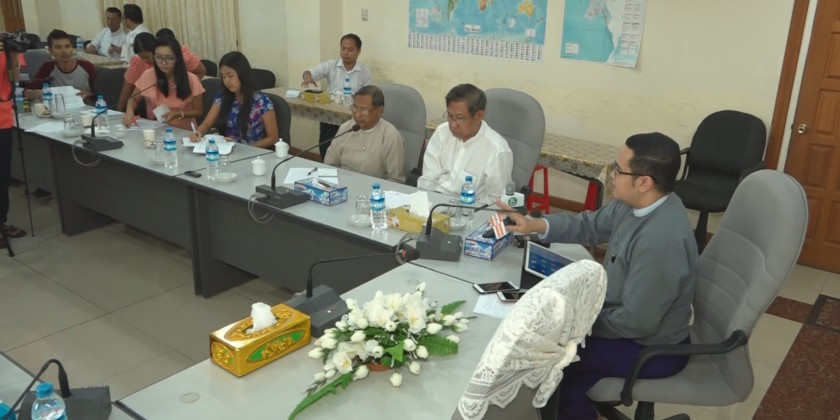
Myanmar Rice Federation and Myanmar Agribusiness Public Cooperation made efforts to develop the agriculture sector in northern Rakhine State
Myanmar Rice Federation and Myanmar Agribusiness Public Cooperation will undertake activities for the development of agriculture sector in northern Rakhine state – it’s to assist in the UEHRD’s process, General secretary of the federation said at a press conference in Yangon on Tuesday. The activities include two parts, urgent assistance and long-term assistance for Buthidaung, Maungtaw and Yathedaung regions of the northern Rakhine state. Regarding with the urgent assistance, harvesters and dryers will be distributed in November, General Secretary of the federation added. -
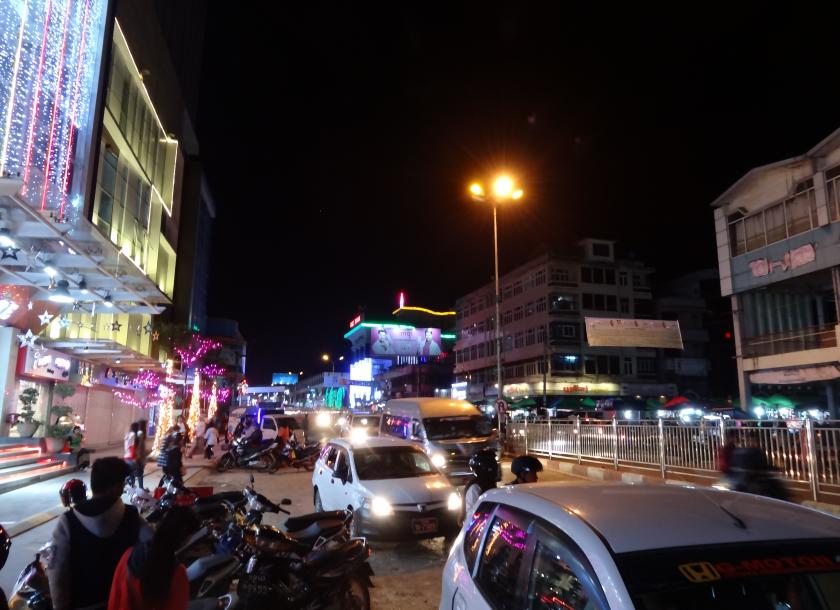
Instead of implementing sweeping economic reforms in Shan State, a lot of time and energy was spent on negotiating the composition of the state’s executive and legislature
The political make-up of the state’s executive and legislature results in a lot of time and energy spent on negotiations instead of implementing sweeping economic reforms in Shan, according to a local chamber of commerce. The state needs political stability and it needs to generate value-added agricultural products in order to grow its economy. Shan State is the biggest state in Myanmar, covering almost a quarter of the country’s total land mass. It borders Yunnan Province, China, as well as Laos and Thailand. The most important sector for the entire state is agriculture to the extent that the Shan economy is agriculture-based, U Aung San Win, chair of the Southern Shan State Chamber of Commerce and Industry, told The Myanmar Times in his residence in Taunggyi, where he also shared his thoughts on the reason behind the state’s somewhat stagnant economic development despite its abundant resources in agriculture -
As foreign companies show genuine interest in doing business in Myanmar, Myanmar approved over $4.35 billion FDI this fiscal year 2017-2018, and expects much more investment in the future
YANGON -MYANMAR has approved US$4.35 billion (Bt145 billion) in foreign direct investment (FDI) in the first six months of fiscal year 2017-18 which started April 1, and hopes to receive much more in the second half, according to San Myint, deputy director general at the Directorate of Investment and Company Administration. He said at the government had approved 129 foreign enterprises to invest $3.5 billion under laws governing home-grown and foreign investment, and allowed $214.08 million of foreign investment in Thilawa under the Special Economic Zone Law. It also allowed nearly $600 million in capital expansion by existing foreign enterprises. “We are pretty satisfied with the inflow of FDI during the first half. We believe we will be busier in the months to come, as many foreign companies have shown genuine interest in doing business here and we are facilitating FDI,” he said. -
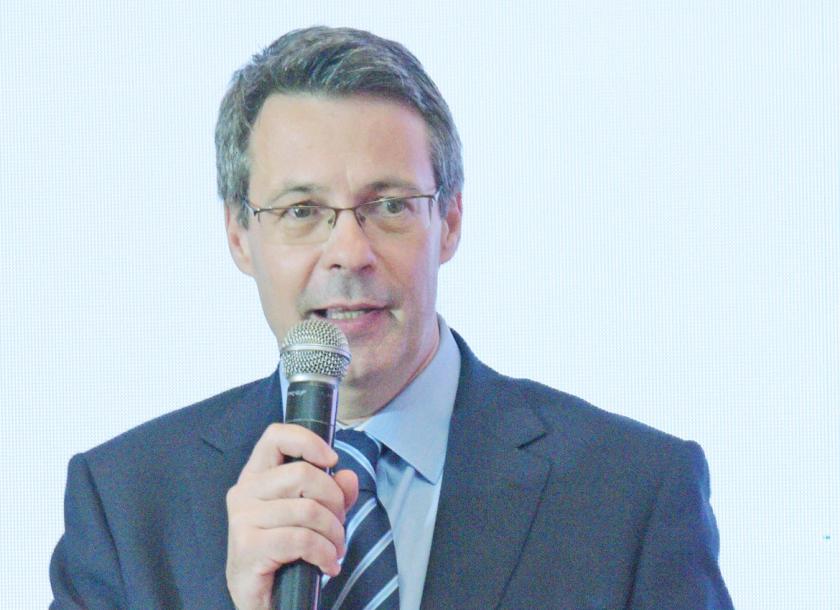
ATM makers race for market share in Myanmar, which has the lowest ATMs per million population ratio of 33 among ASEAN member states
Global automated teller machine (ATM) makers are locked in a race for market share in Myanmar, where more than 90 percent of the population remains unbanked. US-listed NCR Corporation is one, while Diebold Nixdorf, a recent merger between US-based Diebold and Germany’s Windcor Nixdorf, is another. With less than 2,000 ATMs installed in the country, Myanmar has the lowest ATMs per million population ratio of 33 among all ASEAN countries. In contrast, Thailand had the highest ratio of well above 900. The two companies are also going neck-to-neck in Myanmar at a time when the local banks are targeting expansion and financial inclusion. As such, many also want ATMs that will not only help them raise the number of bank account holders, but also reduce costs. -
To attract more foreign direct investment to the three special economic zones, Civil Society Organizations (CSOs) recommended to review and monitor the progress of SEZs
As Myanmar pushes to attract more foreign direct investment through its three special economic zones, civil society organisations have reiterated their recommendation to review and monitor the progress of the SEZs. Charlie Thame, a researcher at Thammasat University’s faculty of political science, wrote a year long report entitled “SEZs and value extraction from the Mekong”. He said at the report launch that the SEZs had been developed with limited transparency and locals had been displaced without proper consultation and adequate redress. “International standards regarding land, labour rights and environmental protection officially apply to SEZs but they have not been effectively implemented,” he said. -
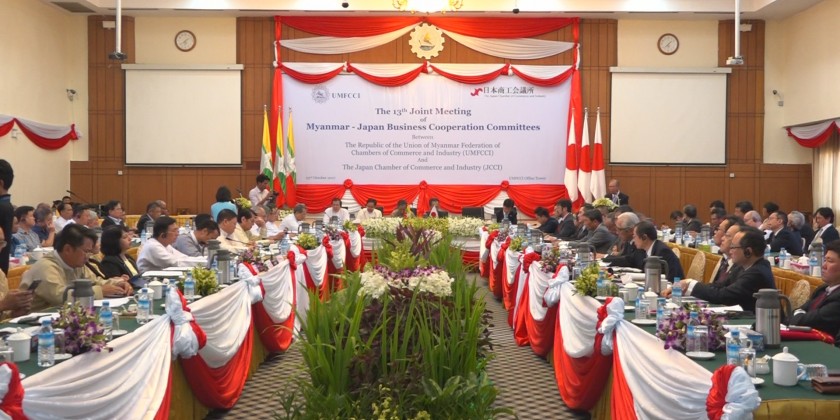
Myanmar- Japan CCI Business Cooperation Committees held 13th joint meeting in Yangon to increase trade and business cooperation between the two countries
Myanmar-Japan CCI Business Cooperation Committees was held its 13th joint meeting in Yangon on Monday, with the attendance of Union Minister for Planning and Finance U Kyaw Win. The meeting is intended to increase the trade and business cooperation between Myanmar and Japan by solving challenges and difficulties. As the Japanese Investment in Myanmar is still weak, the meeting hopes to raise it up, the UMFCCI Vice Chairman pointed out. At present, most of the Japanese investments are in manufacturing sector. Vice Chairman, UMFCCI, Dr. Maung Maung Lay said “The difficulties and challenges are solved at the meeting. As the engagement between us is still weak, the Japanese investment is less especially compared with the neighboring countries.” -
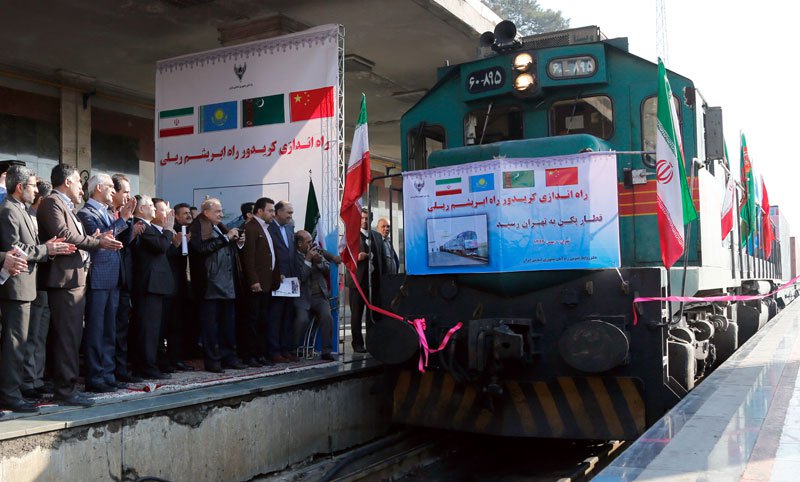
The One Belt One Road (OBOR) is an important catalyst to improve logistics connectivity and trade between West and East, which could do with more local participation
Andre Wheeler is CEO of Asia Pacific Connex, with more than 25 years’ experience in international business. He is currently working towards his doctorate on the Impact of China's Belt and Road initiative on infrastructure and logistics in the ASEAN region. In the following commentary, he examines the latest developments for the One Belt One Road and Myanmar’s expected role in this project: My recent trip to attend a summit and meetings on the One Belt One Road (OBOR) brought to mind the importance and role that Myanmar has to play. These thoughts were confirmed when the Chief Executive of Hong Kong travelled to Yangon immediately following the summit. Although many of the delegates and presenters could not pronounce or spell Kyauk Phyu, the location was referred to on many occasions. -
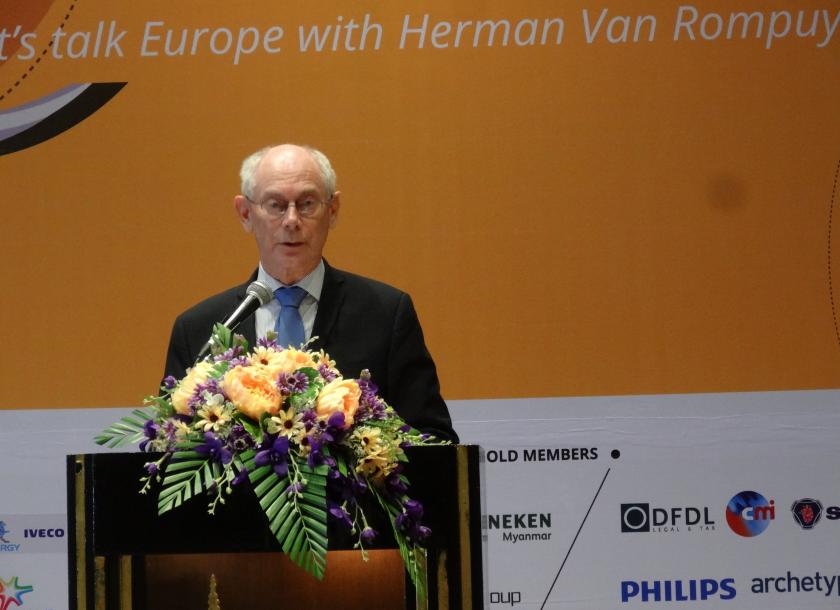
Herman Van Rompuy spoke out against nationalism and discrimination during a reception in Mandalay
SPEAKING in Myanmar’s second largest city, European officials spoke out against nationalism and discrimination in an audience consisting of the region’s elected officials, businesses and foreign investors. Herman Van Rompuy, former European Council President and former Belgian Prime Minister, gave his speech about the EU and the idea of peace, democracy and prosperity during a reception hosted by the European Chamber of Commerce Myanmar (EuroCham) on October 21 in Mandalay. During a sideline interview, The Myanmar Times caught up with EU ambassador Kristian Schmidt and David Levrat, EuroCham chair. Mr Levrat hailed Mandalay as the country’s northern economic powerhouse. “It shows the great and growing interest European companies have for Myanmar and Mandalay in particular. Mandalay is the centre for economic activities in upper Myanmar,” he said, naming construction, health and energy as some of the major sectors of interest for European investors.
เกาะติดข่าว
Copyright © 2014 Business Information Center All Rights Reserved.







